In British slang, 'mental' has shifted from a term strictly related to the mind to depict something extraordinary, surprising, or indicative of disbelief. This evolution mirrors broader societal changes and the dynamic nature of language. Initially, it pertained to mental processes but now often conveys emotions or references to unconventional behavior, subtly carrying a mental health stigma. In sports, 'mental' celebrates resilience and intensity, displaying mental strength. Across the UK, its meaning and usage vary by region, reflecting diverse linguistic landscapes. Exploring these subtleties further reveals the term's complexities and its role within varied contexts.
Key Takeaways
- 'Mental' in British slang often refers to something extraordinary, surprising, or excessive.
- It can describe unconventional behavior, distancing from its original medical connotations.
- The term is used to express emotions, particularly disbelief or amazement.
- Regional variations affect its meaning, with nuances in connotation across the UK.
- In sports contexts, 'mental' celebrates resilience, mental strength, and passion.
Origins of 'Mental' Slang
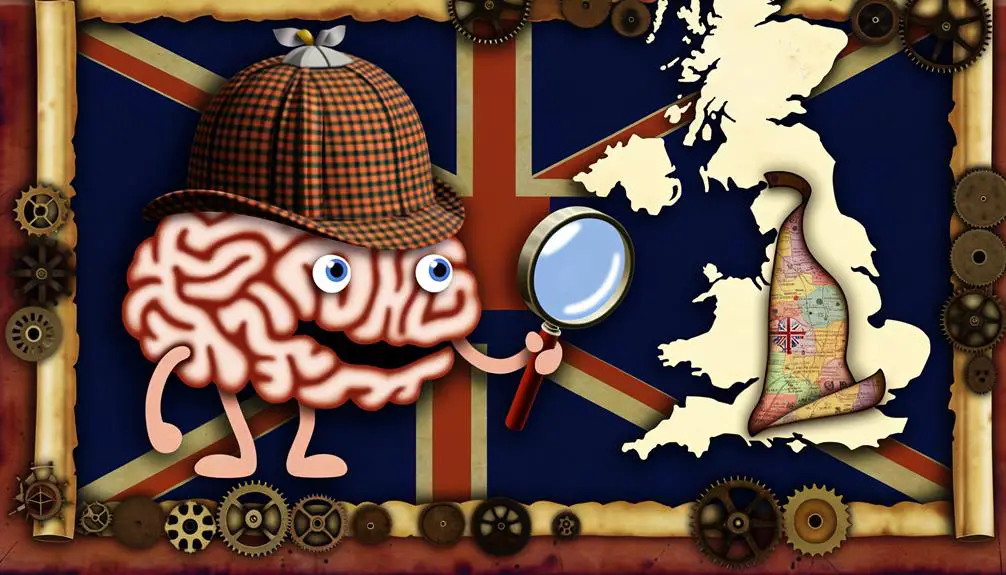
The term 'mental' as slang originated in the UK, evolving from its literal meaning to express something extraordinary or excessive. This linguistic evolution reflects broader societal changes, particularly in attitudes towards mental health. Initially, 'mental' pertained strictly to matters of the mind or disorders thereof. However, as language evolved, so did the usage of 'mental' in colloquial speech.
From a mental health perspective, this shift raises intriguing questions. The transformation of 'mental' into slang signifies not just an evolution in language but also a change in societal perceptions of mental health issues. Initially, the term might've carried a certain stigma, linked directly to mental illness. Yet, as it became slang, 'mental' took on a less clinical and more hyperbolic tone. This adaptation can be seen as a double-edged sword. On one hand, it dilutes the term's association with genuine mental health conditions, potentially reducing stigma. On the other, it risks trivializing these conditions by using the term in a casual, often unrelated context.
The linguistic evolution of 'mental' mirrors broader trends in how language adapts to societal attitudes. Words originally rooted in specific, often medical, contexts can shift dramatically in meaning as they permeate popular culture. This process isn't unique to 'mental'; many terms undergo similar transformations over time. However, the case of 'mental' is particularly significant for its implications for the discourse around mental health. As you explore further into the origins and implications of 'mental' as slang, it's important to take into account these dual aspects: its linguistic journey and its intersection with changing views on mental health.
Expressing Disbelief and Surprise
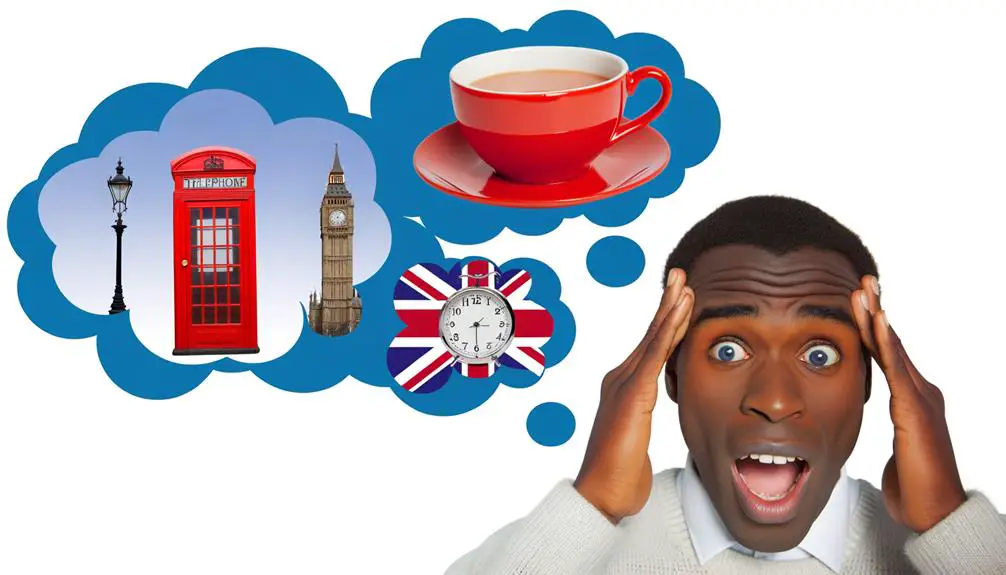
In many instances, 'mental' is employed to convey a sense of disbelief or surprise, reflecting a nuanced shift from its original medical connotations to a broader, more expressive usage. This change indicates how language evolves, particularly in the domain of slang, where words often stretch beyond their initial meanings to capture the complexity of human emotions and reactions. When you hear someone describe a situation as 'mental' in the UK, it's typically a marker of unexpected reactions to events that defy normal expectations or logic.
This use of 'mental' to express surprise or disbelief is deeply rooted in cultural interpretations, varying widely across different English-speaking countries. In British contexts, 'mental' has been embraced as a versatile expression that can encapsulate a wide range of emotions, from shock to awe, without necessarily invoking negative stereotypes associated with mental health issues. This linguistic flexibility allows for a rich tapestry of expressions that cater to nuanced emotional states, providing speakers with the means to convey their feelings succinctly yet powerfully.
Moreover, the application of 'mental' in these scenarios often hinges on the element of surprise—either pleasant or unpleasant—eliciting a response that underscores the unexpected nature of the event or information. It's a tribute to the dynamism of language, demonstrating how words can be repurposed to suit the evolving landscape of human experience and cultural norms.
Understanding this usage requires an appreciation for the subtleties of context and the ways in which language mirrors the complexity of our interpretations and reactions to the world around us. It's a fascinating glimpse into the adaptive nature of slang and its role in shaping communication within a cultural framework.
Describing Unconventional Behavior
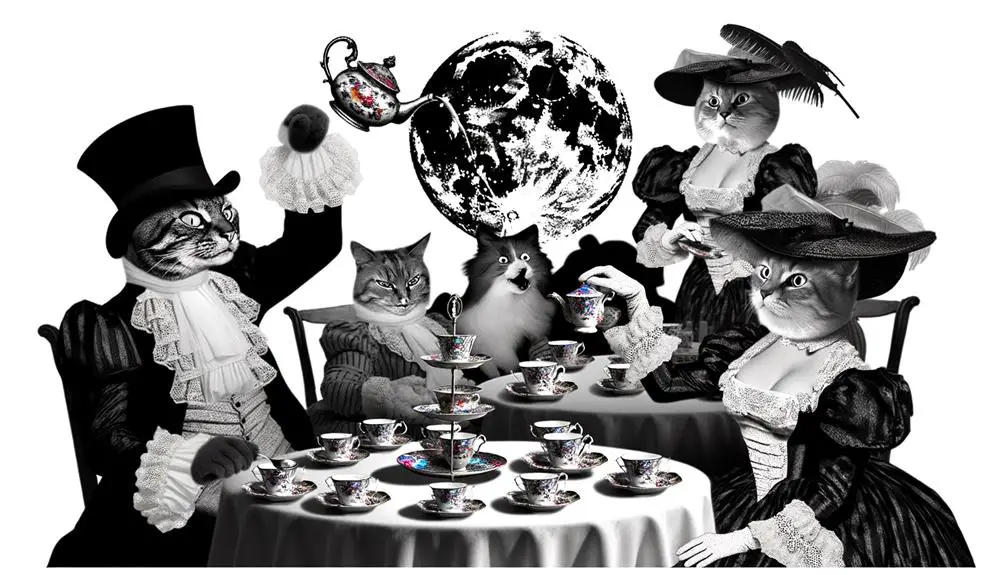
When describing unconventional behavior, 'mental' often serves as a shorthand in British slang, capturing actions or choices that fall outside societal norms. This use reflects a broader, often subconscious embedding of mental health stigma within language. By labeling actions that deviate from the norm as 'mental', there's an implicit association with mental illness, which can perpetuate stereotypes and misunderstanding about mental health issues. It's essential to dissect how this usage impacts both the perception of unconventional behavior and the broader discourse on mental health.
You must consider the cultural interpretation differences that come into play. In British slang, 'mental' can range from a mild, almost affectionate critique of someone's eccentric choices to a more disparaging comment on someone's actions. The context in which 'mental' is used has a notable impact on its interpretation. For instance, calling a friend's decision to impulsively go skydiving 'mental' is vastly different from using the term to dismiss someone's unconventional lifestyle. The former might be seen as recognizing a moment of unusual bravery or folly, while the latter can contribute to a stigma that marginalizes those who simply live differently.
Moreover, the intersection of 'mental' in describing behavior with cultural interpretation differences highlights a need for sensitivity and awareness. As language evolves, so too does the understanding of what it means to use terms associated with mental health casually. Being mindful of the implications of such slang helps in maneuvering the fine line between colloquial expression and reinforcing negative stereotypes surrounding mental health.
'Mental' in Sporting Events
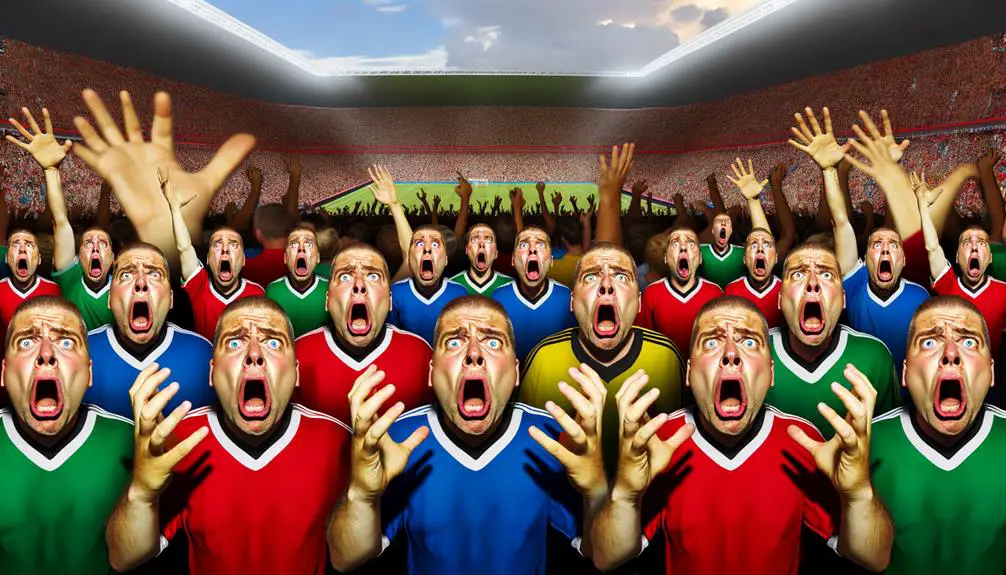
Delving into the domain of sporting events, 'mental' takes on a nuanced role, often celebrating the intensity and passion that athletes and fans exhibit. It's not just a word thrown around lightly; it encapsulates the sheer dedication, focus, and mental resilience required to compete at the highest levels. When you hear someone describe a match as 'mental', they're not just talking about the physical prowess on display but also the psychological battles, the strategies employed, and the mental strength required to overcome adversity.
Athletes, in particular, showcase an extraordinary level of mental resilience. This isn't just about staying focused during the game but also about their ability to bounce back from defeats, handle pressure, and maintain confidence amidst the chaos. It's this mental fortitude that often separates the good from the great, making 'mental' a term of respect and admiration within the sporting context.
Moreover, the term also reflects the crowd energy, which can be palpable during significant sporting events. A 'mental' atmosphere isn't just loud; it's electrifying, capable of influencing the game's outcome by bolstering the home team's morale or unnerving the opposition. This collective energy, this shared passion, creates a unique environment where the psychological aspect of sports becomes as visible and crucial as the physical play on the field.
In essence, within the domain of sports, 'mental' is a multifaceted term that emphasizes the psychological depth, resilience, and communal energy that define the most memorable and thrilling sporting events. It's a proof to the power of the mind in the world of sports, where mental strength can be just as essential as physical ability.
Variations Across the UK
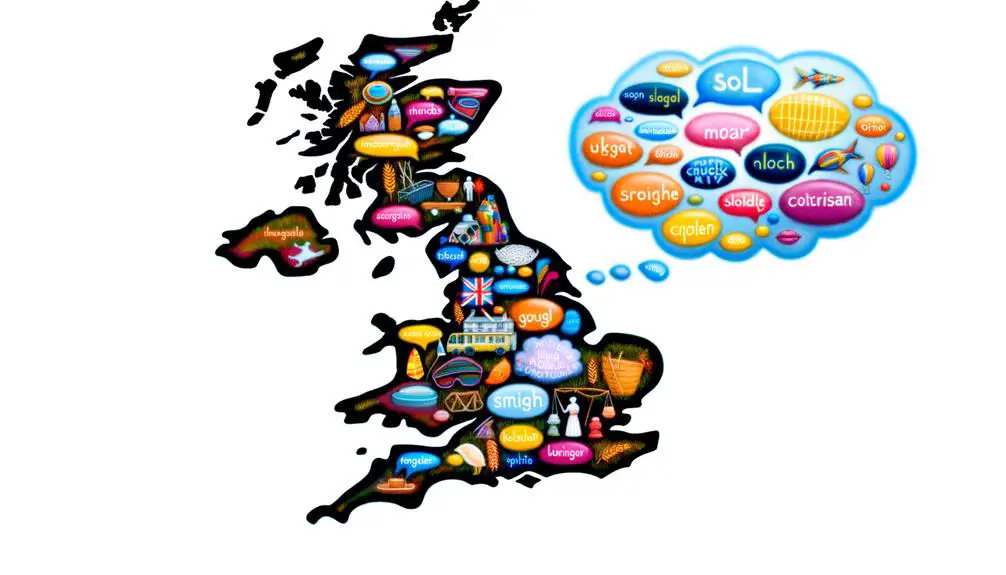
Exploring the UK reveals that 'mental' morphs in meaning and usage, reflecting the diverse linguistic landscapes across regions. As you investigate the nuances of British slang, you'll find that regional dialects play a significant role in how language, particularly slang, develops and varies. 'Mental', a term widely recognized across the UK, takes on subtle differences in connotation and frequency of use depending on where you are.
In Scotland, for instance, the term often carries a stronger emphasis on bizarre or extraordinary behavior, possibly due to cultural influences that favor vivid storytelling. You might hear it in lively conversations that describe a night out or an unexpected event with a touch more drama than you'd find in other regions.
Moving over to Wales, the term blends into the local dialect with a bit more flexibility. It can describe something that's wildly fun or exciting, not just confined to the worlds of the unusual or insane. This broader application reflects a more inclusive approach to language, where words are allowed to stretch and fit into various contexts.
In contrast, parts of Northern England see 'mental' used more sparingly, often reserved for situations that truly warrant its use. Here, the word's impact is heightened by its less frequent appearance in everyday conversation, making it a powerful descriptor when it does surface.
And, as you wander into Southern England and London, 'mental' integrates seamlessly with urban slang, often used to emphasize the intensity of a situation or experience, whether positive or negative. Its adaptation here showcases the dynamic nature of English slang, constantly influenced by shifting cultural landscapes and the diverse populations that call these regions home.
Frequently Asked Questions
How Has the Use of 'Mental' in British Slang Evolved in Digital and Social Media Contexts?
In digital and social media contexts, you've likely noticed how 'mental' has shifted, reflecting broader trends in digital linguistics and slang evolution.
Originally denoting something wild or crazy, its usage now spans a wider emotional spectrum, from excitement to disbelief. This transformation illustrates how online platforms accelerate language change, pushing 'mental' beyond traditional boundaries.
You're witnessing a snapshot of linguistic fluidity, where meanings are constantly negotiated and redefined through digital interactions.
What Are the Psychological Impacts or Controversies Surrounding the Casual Use of 'Mental' in Slang, Particularly Regarding Mental Health Awareness?
Using 'vital' casually in slang can impact societal views on mental health, potentially both advancing language evolution and contributing to stigma reduction.
You might notice that while it normalizes discussions around mental health, it also risks trivializing serious issues. Analyzing its use reveals a complex interplay between cultural shifts and awareness.
As you navigate digital and social media, understanding this balance is essential for fostering a more inclusive and sensitive communication environment.
In What Ways Have Global Entertainment Mediums, Such as Movies and Music, Influenced the International Understanding and Adoption of 'Mental' in British Slang?
Global entertainment, like movies and music, has played a key role in spreading 'mental' in British slang worldwide. You've seen cultural diffusion at work, breaking down language barriers and integrating this slang into various cultures.
This global exposure often reshapes the slang's original context, making its understanding and adoption vary by region. Yet, this phenomenon highlights how entertainment can bridge cultural gaps and influence language evolution on an international scale.
Can the Use of 'Mental' in British Slang Be Traced to Specific Regional Dialects Outside of the Uk, Owing to Historical Migration Patterns?
You might find it tricky to pinpoint specific regional dialects outside the UK that have adopted 'mental' due to historical migration patterns.
However, through linguistic origins and cultural diffusion, it's plausible that the term spread globally.
As people moved, they carried their slang with them, blending and evolving in new environments.
Analyzing these patterns can reveal how 'mental' found its way into various dialects, highlighting the interconnectedness of language and migration.
How Do Non-Native English Speakers Perceive or Misunderstand 'Mental' When Encountered in British English Conversations or Media?
You might find that non-native English speakers often misunderstand 'mental' due to cultural interpretations. This slang, rooted in British English, carries nuances that aren't immediately clear if you're not familiar with its context.
Instead of referring to mental health, it's frequently used to describe something as crazy or unbelievable. This difference in mental meaning can lead to confusion or misinterpretation when you encounter it in conversations or British media.
Conclusion
In dissecting the essence of 'mental' within British slang, you've journeyed through its rich origins, grasped its role in expressing disbelief and surprise, and observed its use in describing unconventional behavior to its spirited presence in sporting events.
Across the UK, variations of 'mental' weave a tapestry of linguistic diversity, underscoring the dynamic nature of language itself.
Isn't it fascinating how a single word can encapsulate such a spectrum of emotions and actions, mirroring the complexity of human experience itself?






